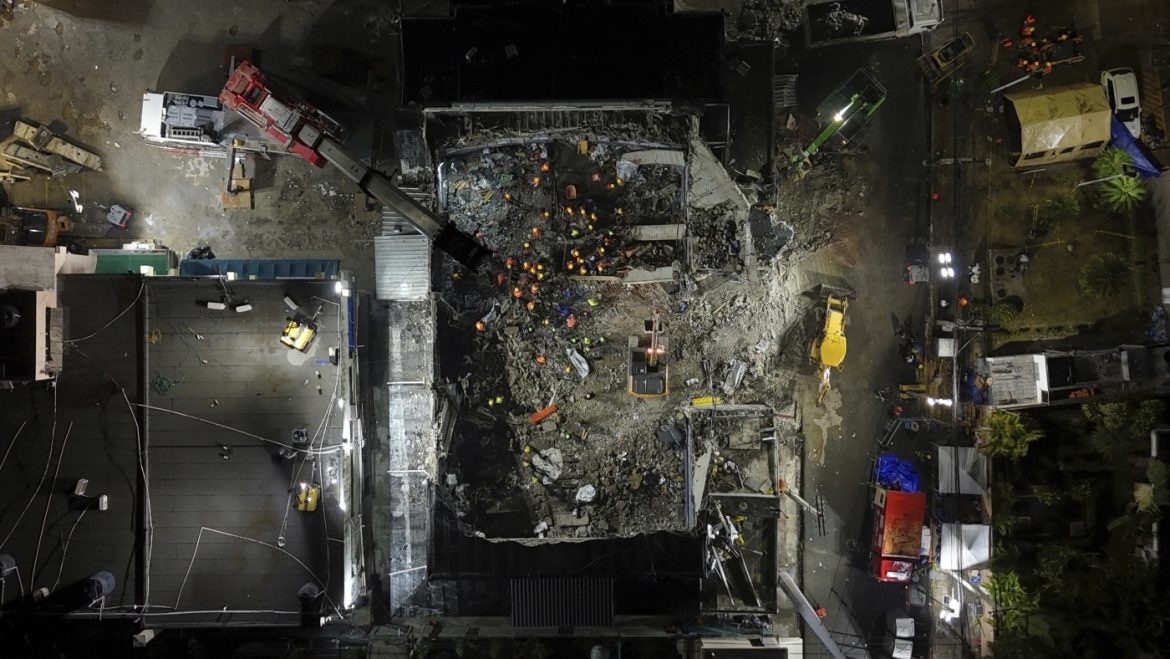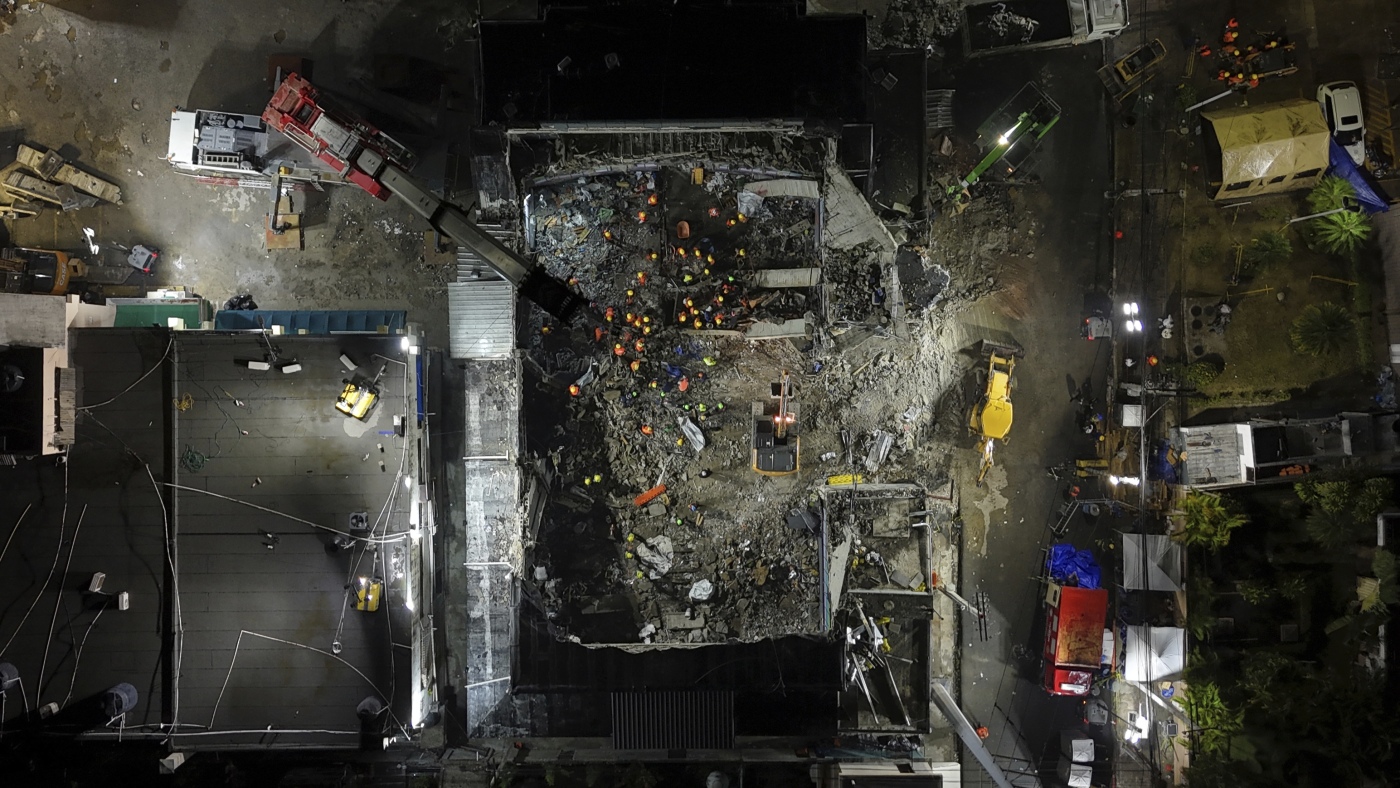Tragedy and Accountability: The Arrest in the Dominican Nightclub Roof Collapse Case
In a harrowing event that shocked the Dominican Republic and the world, the collapse of the Jet Set nightclub roof in early April resulted in the deaths of 236 people. This devastating incident has led to legal repercussions, culminating in the recent arrest of the nightclub’s owner, Antonio Espaillat, and his sister Maribel Espaillat. This report delves into the circumstances surrounding the tragedy, the subsequent legal actions, and the broader implications for public safety and accountability in the region.
The Night of the Collapse: A Deadly Catastrophe
The Jet Set nightclub, a popular and iconic entertainment venue in Santo Domingo, Dominican Republic, hosted a live concert on the early hours of April 8, 2025. Video footage from the event shows patrons enjoying music, sitting at tables near the stage, and dancing near the back. However, the night turned fatal when the nightclub’s roof suddenly collapsed during the performance.
Emergency crews worked relentlessly for over 50 hours following the collapse, rescuing 189 survivors from the rubble. Despite their efforts, 236 people tragically lost their lives in what became one of the deadliest non-natural disasters in the country’s history. The incident not only stunned the nation but also highlighted critical safety oversights in public venues.
The Arrest of the Espaillat Siblings: Legal Developments
Days after the tragedy, authorities targeted Antonio Espaillat, a powerful businessman with ownership interests in upscale entertainment centers and dozens of local radio stations. His sister, Maribel Espaillat, was arrested alongside him. Prosecutors allege that the siblings attempted to intimidate or manipulate company employees, presumably to influence witness testimony or obstruct the ongoing investigation.
While both Antonio and Maribel Espaillat have been detained, official charges have not yet been formally presented as of the latest reports. Authorities have a 48-hour window from their arrest to file charges before a judge, with involuntary homicide being the primary accusation under consideration. This charge reflects the prosecutors’ position that the Espaillats’ negligence or irresponsibility contributed directly to the loss of life in the collapse.
Underlying Issues: Negligence and Public Safety Oversight
The arrest raises questions about the broader causes of the nightclub disaster. Prosecutors claim that Antonio and Maribel exhibited “immense irresponsibility and negligence,” failing to take adequate measures that could have prevented the roof from collapsing. The tragedy has exposed potential lapses in building codes enforcement, venue safety inspections, and operational standards in entertainment establishments.
The case serves as a stark reminder of the importance of rigorous safety standards in public spaces, especially those accommodating large crowds. Given Antonio Espaillat’s prominent role in the entertainment scene, the nightclub’s tragedy casts a shadow on the wider safety culture within such enterprises in the Dominican Republic.
Community and National Impact: Grief and Demands for Justice
The domino effect of the tragedy has been profound. Families lost loved ones unexpectedly, and survivors live with physical and emotional scars. The incident has ignited nationwide mourning and calls for justice not only for the victims but to prevent future disasters of a similar nature. The government and judiciary face intense scrutiny to hold those accountable and to strengthen safety regulations.
The Espaillats’ arrest marks a critical step in responding to public demands for accountability. It signals that powerful figures are not exempt from facing consequences when negligence leads to such catastrophic outcomes. However, the case remains ongoing, with many awaiting to see whether formal charges will cement the legal accountability of the nightclub’s owners.
Moving Forward: Lessons and Reforms
This tragedy underscores the urgent need to overhaul safety mechanisms in public venues across the region. Stricter building inspections, transparent licensing processes, and effective enforcement of existing laws are essential to safeguard citizens. Additionally, corporate and personal accountability must be fostered, ensuring that owners take responsibility for the welfare of their patrons.
The Dominican Republic faces the challenge of healing from a mass loss that shocked its collective consciousness, while also implementing reforms to rebuild trust in entertainment infrastructures. The unfolding legal case against the Espaillats stands as a significant milestone in this journey, potentially shaping policies and legal precedents.
Conclusion: The Quest for Justice Amidst Tragedy
The fatal collapse of the Jet Set nightclub roof remains etched as a somber chapter in the Dominican Republic’s history. The arrest of Antonio and Maribel Espaillat, though still pending formal charges, represents a pivotal moment in pursuing justice for the 236 victims. Beyond legal proceedings, the incident casts a long shadow on public safety practices and corporate responsibility in the country.
As investigations continue, the hope is that this tragic event will not only lead to accountability for those responsible but also catalyze stronger protections for the public. Only through such measures can the memory of the victims be honored and future tragedies averted.


